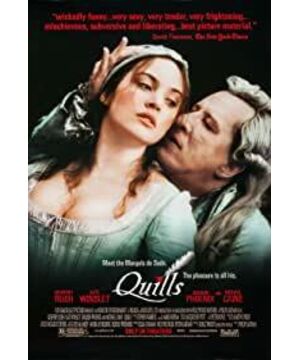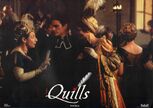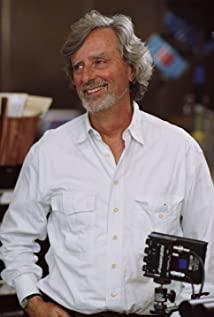From the time of ancient Greece, literature has been deeply branded with "morality". From Plato's expulsion of poets from the Utopia, to Aristotle's "education and entertainment", the moral education of literature has become the top priority of literary value, and one of the criteria for measuring the quality of a work. It is the author's moral level. The works written by morally corrupt authors will be spurned and driven out of the ideal country, and the social atmosphere under the influence of morally corrupted works will inevitably deteriorate. This worry is not without reason, so Horace carried it forward, thinking that moral education is the end, and artistic pleasure is the means. During the Enlightenment, DiRod also said, "Truth and virtue are the two friends of art". Up to now, more or less, we are still consciously or unconsciously affected by this kind of thinking.
Christianity requires patience, kindness, and abstinence, and this Puritanism dominated society in the early stages of capitalist development. However, Sade is just the opposite. He thinks that he uses words to present the most primitive and instinctive behaviors of human beings in words, but people cannot accept the ugly side of human nature. This is very absurd in his opinion. . Sade's literature has always been regarded as "immoral literature". In the movie, the priest's friendship with Thad is an interesting metaphor. The two forces were at peace in the beginning, until the window paper was pierced, and the priest learned that Sade's novels were frantically pursued, and he himself was frantically writing. So the priest took all of Sade's quills and letterhead. In the film, Sade has a very meaningful sentence - "You started this little game." Then, Sade tried every means to continue writing, and Geoffrey Rush tried to show Sade's neuroticism. As the story progressed step by step, Thad changed from rage to pleading and helpless. One of the most impressive shots, Thad is naked in bald's room, (bald is a very good word), he is curled up in the corner, looking very weak and very pitiful. He begged Madeleine, and then, began the most powerful creation of his life.
On the night of thunderstorms (something must happen), the mentally ill in the asylum started a revolutionary action in madness. Sade swept away the weak and helpless. At this time, he was like a king. He felt that blood began to flow again, and life began to embark on a journey again. The patients passed on his dictated text, and he felt alive again. But the tragedy begins here. Madeleine died because of this, the only person in the world who could understand Sade's heart died indirectly because of Sade. I think the relationship between Thad and Madeleine is very delicate. It is not "love" as the priest thinks, nor is it a physical relationship. Thad has fucked her countless times in his mind, but it is only a mind middle. Sade himself thinks that this is an idea shared by everyone, and there is nothing to be ashamed of.
The intervention of the powerful doctor symbolized the obstruction of the mainstream ideology in society. Think it's immoral, it's a crime, it's a shame. The priest once asked Sade "Why don't you write about your life, but you want to write this?" Sade's answer is very simple, "Because This is what everyone thinks." Aristotle's brilliance lies in that he understood that there is a gap between human nature and morality, and any indulgence of life is likely to break through the defense line of reason and easily lead to society. mess. Thad just went to touch this bottom line. However, the aesthetic value of literature is reflected in beauty and ugliness, and the standard of morality is good and evil. You cannot impose moral standards on the measure of literature. Morality is a historical category, but there is always something beyond it. Although Sade was banned by society, Hugo, Dumas, Nietzsche and others were all supporters of his works. Although moral standards change, people's primitive instincts, love, desire to create, and desire to express and communicate are part of human nature and remain unchanged from generation to generation.
Based on this, give morality back to morality. Literary works are more concerned with the true nature of human nature, and are the embodiment of sincere and in-depth life care. Let morality go.
View more about Quills reviews











